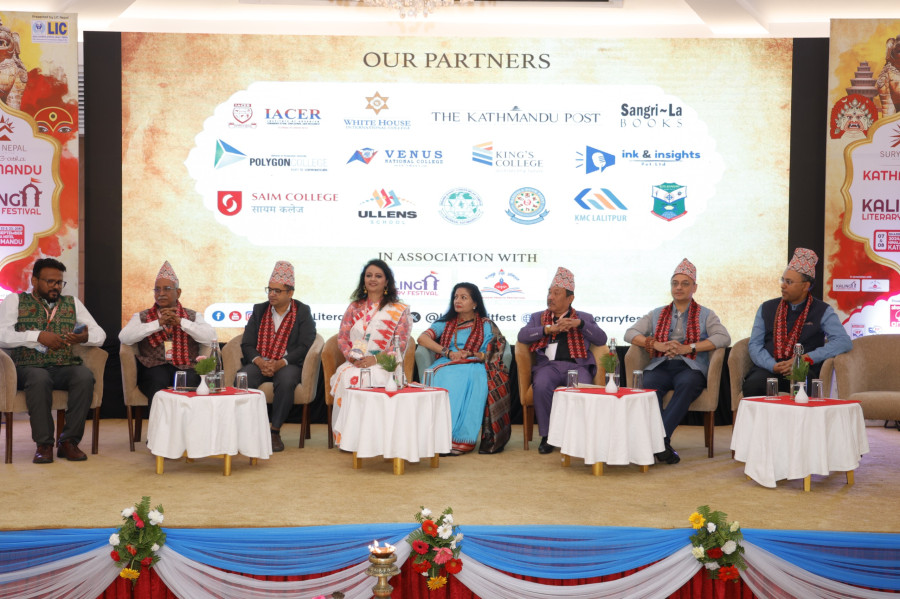Culture & Lifestyle
Kalinga Literary Festival celebrates South Asian literary heritage
The two-day fest ends today.
Post Report
The third edition of the Kathmandu Kalinga Literary Festival (KLF) kicked off at Hotel Himalaya in Lalitpur. The event, themed ‘Nepal: The Gateway to Asian Art, Culture, and Literature’, was inaugurated by Bhupal Rai, Chancellor of Nepal Academy, KLF Founder Rashmi Ranjan Parida, Kathmandu KLF Director Ranjana Niraula, Shri Prasanna Shrivastava, Deputy Chief of Mission at the Indian Embassy in Kathmandu, Dr Bhuwan Dhungana; Indian diplomat and novelist Lakshmi Murdeshwar Puri and Indian economist and writer Sanjeev Sanyal.
During the opening session, poet Bhuwan Dhungana received the Yashaswi Sahitya Award. The Yashaswi Book Award 2081 was given to six books across five categories.
The awardees include Devvrat for his poetry collection ‘Aswasthamako Nidharbata Bagmati Bagchha’, Muna Chaudhary for her fiction ‘Laar’, Momila Joshi for her non-fiction work ‘Prashnaharu Ta Baki Nai Rahanchhan’ and Arun Gupta for ‘Sanskriti Chintan’. Rohini Rana’s ‘The Nepal Cook Book’ (English) and Yagyaraj Upadhyay’s research work ‘Kali-Karnaliko Lok Sahitya Tatha Sanskriti’ were also recognised.
Each recipient received a prize of Rs20,000 along with the award.
The festival brings together over 300 writers from Nepal and other South Asian nations, fostering an exchange of literary and cultural traditions.
According to Niraula, director and founding member of KLF-Kathmandu, “The Kathmandu Kalinga Literary Festival will celebrate the longstanding cultural ties between Nepal and South Asia while offering a platform for deep discussions on the evolution of global cultures.”
Chancellor Rai emphasised that the festival fosters global connections through cultural interactions. He remarked, “This festival is a way to unite the world through cultural activities and interactions. It bridges South Asian countries and brings people together despite the distances.”
Deputy Chief of Mission Shrivastava also discussed the festival’s significance in strengthening Nepal-India relations. “This Indian festival has been celebrated in Kathmandu—a city with a rich cultural heritage—for three years. India and Nepal share a deep-rooted relationship and heritage. The festival aims to promote Nepal’s art, literature, and culture across Asia and to encourage an exchange of ideas between Nepal and India,” he stated.
The first day featured around 27 sessions, including ‘Laws for Women: Differences Between the Constitution and Treatment’, ‘To the Moon and Back’, ‘Bridging Heritage: Cultural Synergies’, ‘Media, Literature, and Social Responsibility’, ‘Bridging Worlds: The Art of Publishing and Translation’, ‘The Role and Future of Literature in the Age of AI’, ‘Recent Developments in Literature Translations from Nepal’, ‘How Significant are Literature Festivals?’, and ‘Nepal Bhasa Script and Literature: Past and Present’, among others.




 9.83°C Kathmandu
9.83°C Kathmandu
.jpg&w=200&height=120)













